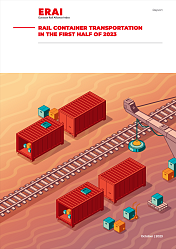The text of the news was taken from a English-language source: XINHUANET
A China-Europe freight train passed through the Horgos Port heading for Poland Monday afternoon, marking the 61st China-Europe freight train leaving China via the port in February this year.
On Saturday, a China-Europe train carrying 850 tonnes of raw cotton entered China via the Alataw Pass in the region.
Due to the impact of the novel coronavirus, most of the China-Europe freight trains carrying imports have been suspended or delayed, and the number of the exit and entry trains has dropped sharply since late January.
Dou Luxin, deputy director of the Horgos customs, said the customs sent officers to check all the trains so as to prevent the epidemic from spreading through the port.
Since the beginning of the year, the Horgos Port and the Alataw Pass have seen more than 730 China-Europe freight trains entering and leaving China. The export goods mainly included mechanical and electrical products, clothing, and electronic products while the imports are mainly cotton yarn and construction materials.




